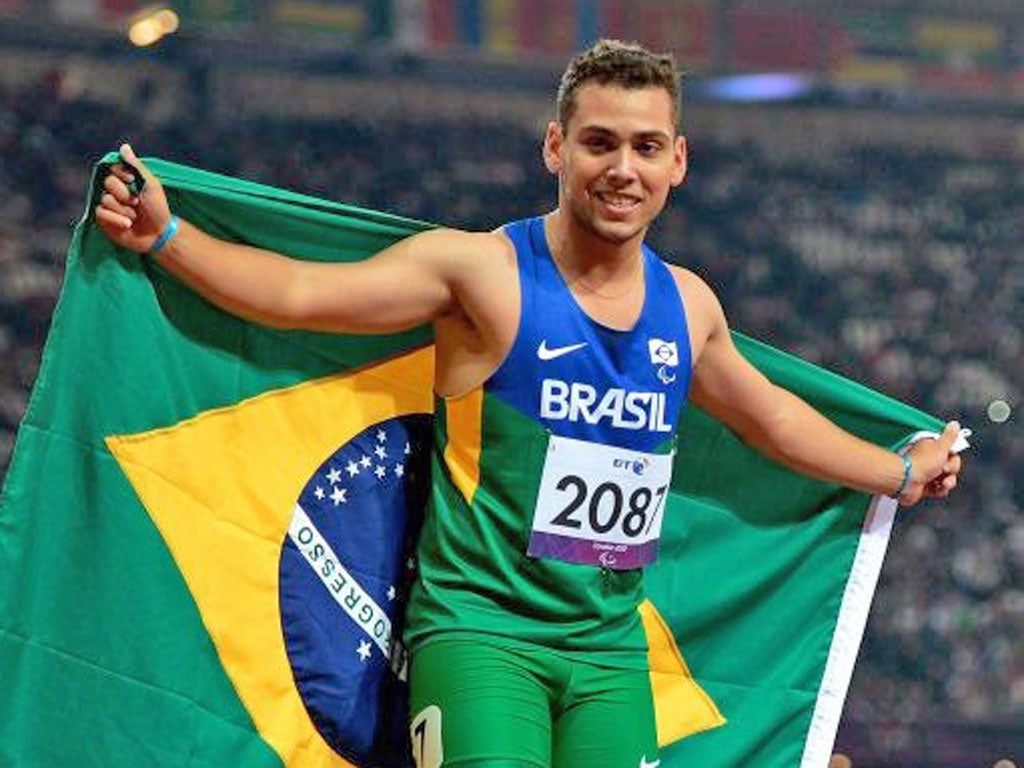Alan Oliveira simply 'ran faster' than Oscar Pistorius, insists expert

Your support helps us to tell the story
From reproductive rights to climate change to Big Tech, The Independent is on the ground when the story is developing. Whether it's investigating the financials of Elon Musk's pro-Trump PAC or producing our latest documentary, 'The A Word', which shines a light on the American women fighting for reproductive rights, we know how important it is to parse out the facts from the messaging.
At such a critical moment in US history, we need reporters on the ground. Your donation allows us to keep sending journalists to speak to both sides of the story.
The Independent is trusted by Americans across the entire political spectrum. And unlike many other quality news outlets, we choose not to lock Americans out of our reporting and analysis with paywalls. We believe quality journalism should be available to everyone, paid for by those who can afford it.
Your support makes all the difference.A leading sports scientist yesterday maintained that the Brazilian Blade Runner Alan Oliveira did not gain an unfair advantage over Oscar Pistorius in the T44/43 200m final that ended in controversy at the Paralympics on Sunday night. In the immediate aftermath of his shock defeat – his first at the distance – Pistorius complained that the victorious Oliveira and bronze medallist Blake Leeper of the United States had used bigger prosthetic blades that gave them an elongated stride length.
"We aren't racing a fair race," the 25-year-old South African said. "These guys are a lot taller and you can't compete with the stride length." However, Dr Ross Tucker, a research associate in exercise science and sports medicine at the University of Cape Town, yesterday posted an article on his Science of Sport website contradicting Pistorius's assertion.
"Pistorius took 92 steps during the race [2.2m per stride], and Oliveira took 98 steps to win gold (2.0m per stride)," he wrote. "A simple count shows that Pistorius has longer strides than Oliveira, and they are consistently longer. Oliveira's faster speed, then, is the result of faster leg movement."
The nub of the problem is that Pistorius uses blades that conform to the specifications of the International Association of Athletics Federations, which allow him to race in able-bodied competition. The world governing body of track and field has jurisdiction over the Olympics but not the Paralympic Games. They are run by the International Paralympic Committee, which has its own rules on permissible prosthetics.
Pistorius issued an apology for his post-race outburst yesterday but, pointedly, acknowledged that the IPC rules were an "issue." "I would never want to detract from another athletes' moment of triumph and I want to apologise for the timing of my comments after yesterday's race," he said in a statement. "I do believe that there is an issue here and I welcome the opportunity to discuss with the IPC but I accept that raising these concerns immediately as I stepped off the track was wrong."
Craig Spence, communications director of the IPC, said that a meeting with Pistorius was required to resolve the issue.
Join our commenting forum
Join thought-provoking conversations, follow other Independent readers and see their replies
Comments